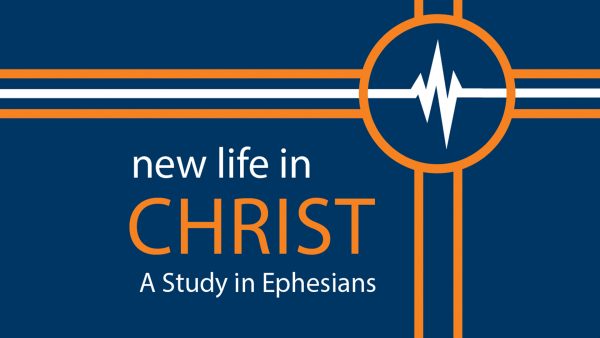God had been silent for four hundred years. His people wondered if His promises to Abraham and David were no longer valid. They chafed under the domination of Gentile overlords. The faithful among them, like Simeon and Anna (Luke 2:25, 36), longed to see the Messiah. And at exactly the right time, He came (Gal. 4:4). The divine silence had been deafening, but Jesus’ arrival was the clearest, most personal message possible. After revealing Himself at many times and in many ways, our Creator finally spoke by His very own Son (Heb. 1:1–2).
This incarnation changed everything for those who had spiritual eyes to observe what was happening. Jesus Christ lived righteously, died vicariously and arose victoriously. Redemption had dawned. Thousands and thousands of people believed in this Savior in the inaugural days of the church (Acts 2:41).
But new life in Christ does not translate into an easy existence. There are trials and temptations, enemies and skeptics. How should Christians live in a world full of pressure? What does it mean to live by faith in contexts, both Jewish and Gentile, that are averse to the gospel message? It requires wisdom from above. And that’s exactly what we find at the heart of this letter.
The teaching of this letter seems to reverberate out from James 3:13–4:10. Before beginning our study of this passage, the letter’s theological epicenter, it is important to become familiar with the context of the entire book, the surrounding region. We will begin to understand the letter’s terrain as we orient ourselves to some of its key features. Let’s start with James himself.
The Author: A Servant-Pastor
When James introduces himself as the author, he doesn’t say which James he is, and there are at least three men named James in the New Testament:
- James the brother of John, the son of Zebedee
- James the son of Alphaeus, or James the Less
- James the half-brother of Jesus
It is clear from the book of Acts that by the time the epistle of James was written, James the brother of John had been martyred by Herod, the king of Israel. (See Acts 12:1–2.) James the Less is not likely to be the writer because little is known of his history. So, tradition has established that the author is James the half-brother of Jesus. Although he was not a believer in Jesus prior to Christ’s crucifixion, James is mentioned in Matthew 13:55 and Mark 6:3. From Paul we learn that James trusted in his half-brother as Savior when Jesus appeared to him after the resurrection (1 Cor. 15:7).
Not only did James believe; he became an early leader of the church in Jerusalem. When Peter was miraculously released from prison by an angel, he instructed his fellow Christians, “Go shew these things unto James, and to the brethren” (Acts 12:17). Paul even refers to James as the only other one of the apostles, in addition to Peter, with whom he dialogued about the nature and sphere of gospel ministry (Gal. 1:19). The clearest indication of James’ leadership is in Acts 15, when during the Jerusalem Council he gives wise counsel to help the church tread troubled waters and emerge in gospel unity. Therefore, there are good reasons to believe that Jesus’ half-brother wrote the letter we know as James.
With his authorship in mind, think about how the letter begins: “James, a servant of God and of the Lord Jesus Christ” (James 1:1). He considers himself a bondslave not only of God the Father but also of his very own brother. James may have been a lead pastor in Jerusalem. He may have shared the same maternal gene pool as Jesus. He may have had a status nearly equivalent to Peter and John. However, he identifies himself as a slave. He glories in the reality that his life was not his own. And as will be explained below, his letter is not the collected wisdom of a revered leader but the application of truth spoken by his Messiah. James understood that he was a servant, not the master.
The Audience: Brothers in Affliction
James is writing to Jewish believers of the dispersion—”the twelve tribes which are scattered abroad” (James 1:1). A great persecution had begun on the day of Stephen’s stoning (Acts 8:1). Saul would later become the messenger of salvation to the Gentiles, but at this point in time he was the agent of persecution for believing Jews. They had been driven from their homes and were living outside of Israel (Acts 8:4). They scattered to places like Phoenicia, Cyprus and Antioch (Acts 11:19).
Because of their forced dispersion, these believers were living wherever they could: in the forest, in refugee camps, or in the homes of other Jews. They were without jobs, living in poverty. The Jewish community rejected these believers because of their faith in Jesus as the Messiah. And they had little confidence that they would be able to return to their homes. It is to these people that James writes his letter, and his goal is clear.
James speaks to these people as a good shepherd does. Notice how he repeatedly refers to them as “(my beloved) brethren” (James 1:2, 16, 19; 2:1, 5, 14; 3:1; 4:11; 5:7, 12:19). (Brothers is a general term that includes both male and female Christians.) Even though he may have been separated from his readers geographically, he identifies with them as fellow family members of God’s church. He is not afraid to challenge these believers, but he does so lovingly. He writes as a fellow bondslave of Jesus Christ.
The Message: Wholehearted Faithfulness
This letter was written approximately AD 40–45, making it the first New Testament book to be written. Some New Testament letters include extended explanations of key doctrines. Romans does this. Others concentrate on practical exhortations and read more like a sermon. James is in the latter category. In fact, some have considered James a manual for Christian Living 101. It contains over fifty imperatives, even though there are only 108 verses in the entire book. In other words, James assumes the content of the Christian faith and spends his time practically applying what it means to live out that faith as pilgrims in this world.
James introduces his message and purpose in the first eight verses of chapter one, where he addresses these dispersed believers on this issue: trials are a test of one’s faith.
James 1:1–8
James, a servant of God and of the Lord Jesus Christ, to the twelve tribes which are scattered abroad, greeting. My brethren, count it all joy when ye fall into divers temptations; knowing this, that the trying of your faith worketh patience. But let patience have her perfect work, that ye may be perfect and entire, wanting nothing. If any of you lack wisdom, let him ask of God, that giveth to all men liberally, and upbraideth not; and it shall be given him. But let him ask in faith, nothing wavering. For he that wavereth is like a wave of the sea driven with the wind and tossed. For let not that man think that he shall receive any thing of the Lord. A double minded man is unstable in all his ways.
The primary purposes of these trials are to mature one’s faith and develop one’s character. This is very consistent with what Paul teaches concerning tribulation in Romans 5:3–5 and what Peter writes about suffering in 1 Peter 1:6–7.
Peter, James and Paul are unified on this singular theme: believers must highly value these trials of life by counting them as joy. This is an act of faith and not feeling because trials are understood as the means of developing a believer’s faith. God also promises His all-sufficient wisdom for every trial. He will guide us into making right choices all along the way if we seek and pursue this wisdom that is from above.
In light of these truths, why would believers not value these trials and pursue God’s wisdom? James 1:8 explains the reason. It is because of double-mindedness—a word coined by James. It means two-souled and has the idea of having a heart for God while at the same time having a heart for the world. John Bunyan called such a person “Mr. Facing-both-ways.” The reason for the struggle is due to one’s own inherent sinfulness. James uses three key words in his letter to describe these desires. In 1:14 epithumia means lust; zelos in 3:14 and 16 means envy; and hedone in 4:1 and 3 mean pleasures or lusts. These desires can be satisfied only in this sinful world (Eph. 2:3; 1 John 2:16). So, when do Christians waver in their faith? We waver when we fail to turn in self-denial from our own self-centered desires. This is why worldliness is a very present and powerful problem in the church. It can be resolved only when we completely surrender ourselves to God and wholeheartedly and single-mindedly follow the Lord.
James begins his letter with encouragement to respond in faith when tested by trials. The letter reaches its climax in the section that we are studying, James 3:13–18. This passage is the thematic peak of the letter where James challenges God’s people to be committed to being wise. This paragraph is followed by James 4:1–10, which serves as the exhortational heart of the book. As Douglas Moo explains, “James bursts out here with an expression of his deepest concern about the readers.” James expresses his concern in three ways:
- He deals with the source of all conflicts among believers.
- He addresses the problem of their worldliness.
- He commands them to humbly turn to God in full surrender and complete repentance.
The Letter: Practical Exhortation
Douglas Moo presents three characteristics of James:
- It is “intensely practical.” James uses clear and direct commands. His purpose is not so much to inform, but to chastise, exhort and encourage. James concentrates on the outworking of theology.
- It is concise and is similar to the book of Proverbs.
- It is easy to understand and remember because of the “lavish use of metaphors and illustrations.”
One interesting aspect of this letter is its frequent allusions to the Sermon on the Mount. For example, Jesus taught that disciples should rejoice amid trials (Matt. 5:12), and James echoes Him (James 1:2). Jesus calls for disciples to ask, because God the Father gives freely to them (Matt. 7:7). James speaks in the same terms (James 1:5; 4:2–3). With over 25 echoes of Jesus’ most famous sermon, James’ letter could be considered a commentary on the Sermon on the Mount. Jesus taught would-be disciples about the kingdom. They were interested in following Christ but did not yet understand what kind of king He was. James wrote to scattered disciples. They professed faith but were struggling with adversity and with worldliness. We are very much like these believers James is addressing. We too are the church in the world. James’ letter is ultimately a call to all believers throughout all church history to be totally loyal to the Lord, to pursue the goal of being spiritually mature, and to seek the wisdom that is from above.
This post is from Wisdom from Above: A Study in James by Steve Pettit. Copyright 2015 by BJU Press. Printed by permission of BJU Press.
This post is part of the study designed to correspond with the 2020 Spring Chapel Series. Watch the chapel message below:
Join us for chapel via live webcast at 11 a.m. every Monday and Wednesday.








